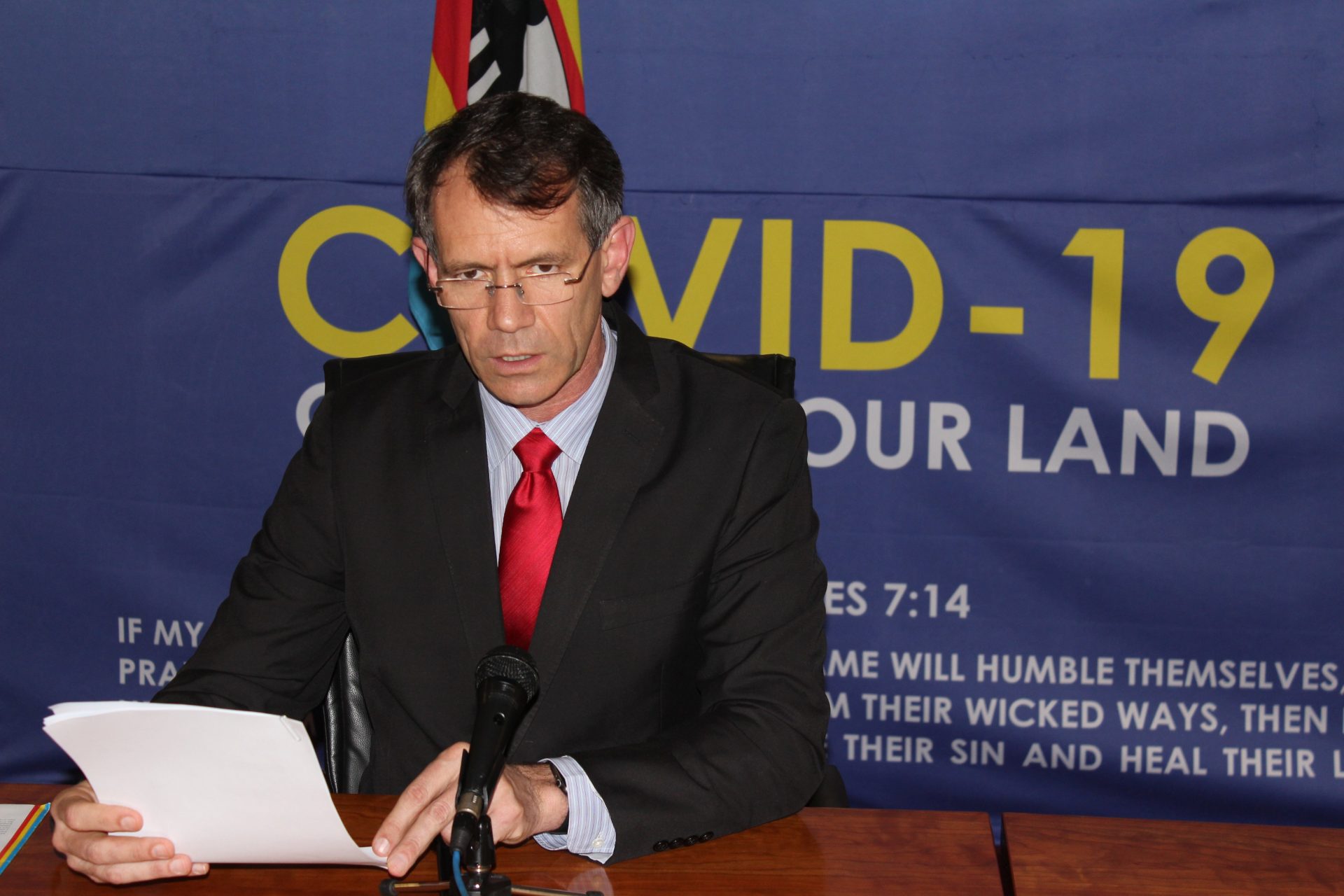1. The Kingdom of Eswatini, like all other countries on the globe has been affected and impacted significantly by the corona virus pandemic and
to this end the Government has lodged a request for budget support from the International Monetary Fund (IMF) under the RFI purchase window. This facility will avail funds to cushion the budget and help address urgent balance of payment needs created by the COVID-19 pandemic.
2. The scourge has severely affected Eswatini’s economy, exacerbating pre-existing economic challenges and hindering Government’s efforts
to preserve fiscal sustainability and support recovery from previous shocks. In addition, the measures adopted to contain the pandemic
and declining export demand, have led to a significant contraction in economic activity.
3. Since Eswatini registered the first confirmed COVID-19 case on March 14, 2020, the number of cases had risen to 1,894 as of July 21, 2020,
with 24 fatalities. In this regard, while the pandemic has exerted undue pressures on the already stretched health care system, the proximity
of Eswatini to South Africa, the most impacted country in the region, has exacerbated risks of infection.
4. The COVID-19 pandemic has also severely affected the budget. The technical recession is affecting domestic revenue, which is expected to
fall short of the budget target by 2.6 percent of GDP. Moreover, to mitigate the impact of the pandemic, the government has put in place a response package at the cost of about 1.5 percent of GDP. The package includes additional health spending, ramped up food assistance programs, increased social protection transfers and improved access to water and sanitation facilities for the vulnerable.
To accommodate this additional expenditure, additional resources have had to be mobilised, which would have worsened Government’s
fiscal position, which had already been in a precarious state prior to the emergence of the scourge.
5. Due to the limited space therefore, a non-expansionary supplementary budget for Financial Year 2020/21 has been presented to Parliament
to accommodate the additional pandemic-related spending within the existing overall budget ceiling by curtailing spending authorization for
capital outlays, selected operating expenses, including transfers to public entities, and limiting hiring plans.
6. Moreover, despite this prudent approach, given the reduction in GDP, the fiscal deficit is projected to widen to about 8½ percent of GDP,
compared to 4.7 percent targeted in the 2020 budget and gross financing needs are projected to approach 25.8 percent of GDP. While
part of the budget financing needs will be covered in the domestic market, we estimate an additional US$207 million (5.3 percent of GDP) is required to close the fiscal financing gap for the year.

7. The initiative taken by the Kingdom of Eswatini to request for a Rapid Financing Instrument(RFI) does not mean the country is under the Fund program. The RFI is an instrument availed by the IMF to all
eligible countries to help counter the effects of Covid-19. However, by being responsible and determined to minimise the effects of the
pandemic on our economy, Government has put in place measures and made certain commitments to ensure that our macro-economic fundamentals are strictly monitored and managed in the current year
and over the medium term. These include the following:
i. Government is committed to a three-year fiscal consolidation plan of 6.5 percent of GDP starting in Financial Year 2021/22 to stabilize public debt and strengthen external resilience, in the context of government’s Medium-Term Recovery Strategy. To
this effect, a combination of expenditure and revenue measures, including containing the wage bill, streamlining spending and transfers to state-owned entities, rationalizing operational expenditures and improving the targeting of social assistance programs.
ii. Government plans to mobilize additional revenues through broadening tax base, increasing the upper ceiling of personal tax while giving relief to the lower end, follow the Republic of South Africa if they increase VAT, enhance tax administration, while
delaying plans that would reduce corporate income tax collected.
iii. To further preserve fiscal sustainability, Government has made significant strides to stop accumulation of arrears and remains committed to a strategy to transparently liquidate past arrears.
iv. The Central Bank of Eswatini will continue to support the peg and strengthen liquidity management. Moreover, the CBE stands
ready to modify reserve requirements as needed to address excess liquidity and will continue to enhance its liquidity forecasting capacity going forward.
v. Government is also stepping up efforts to strengthen governance and intensify the fight against corruption. To ensure transparency and accountability on the use of Covid-related resources, Government has put in place measures and conditions for budget tracking, reporting and publishing of all Covid-related procurement and spending.
8. The public is informed that an official request for budget support has already been submitted and motivated by the Minister for Finance, supported by the Planning and Budgeting Committee (PBC) to the IMF. The request will be presented to the IMF Board before the end of this week and the outcome will be communicated soon thereafter.
9. The Government is considering policy measures and projects that are geared towards boosting the economy post Covid-19 pandemic. Moreover, the World Bank and the African Development Bank have
also been engaged to solicit additional budget support to ensure that our Medium Term Fiscal Framework (MTFF) does not have any
financing gap.
10. We wish to take this opportunity to reassure the public that the Government of the Kingdom of Eswatini will continue to place the interests of Emaswati at the centre of its focus and that, in spite of the challenges ahead, everything possible will be done to ensure that the economy of the Kingdom of Eswatini remains a going concern.


